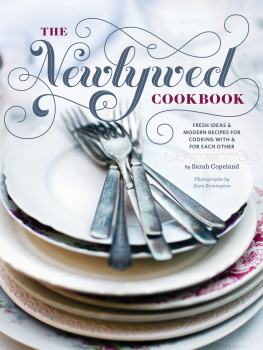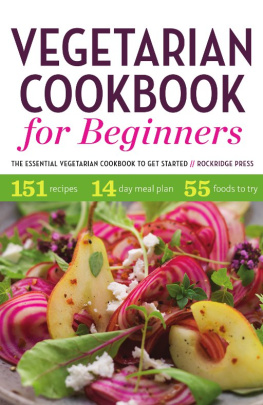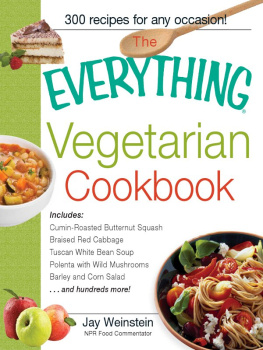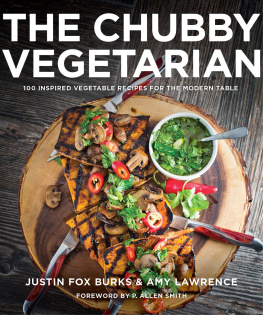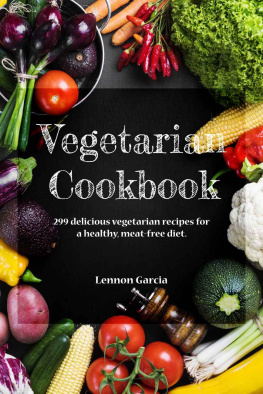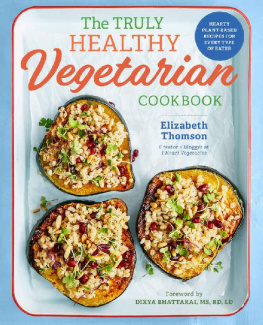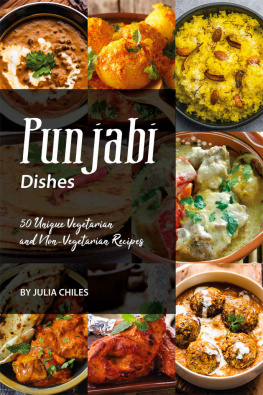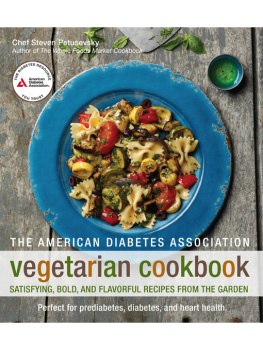
For my family, for teaching me how to feed body and soul.
For the eaters, lets feast.
Text copyright 2013 by Sarah Copeland.
Photographs copyright 2013 by Yunhee Kim.
All rights reserved. No part of this book may be reproduced in any form without written
permission from the publisher.
ISBN 978-1-4521-2960-0
The Library of Congress has previously cataloged this title under ISBN 978-1-4521-0973-2
Designed by Alice Chau
Prop styling by Rebecca Ffrench
Food styling by Sarah Copeland
Typesetting by Helen Lee
This book is typeset in Eplica, Univers, and National.
Tabasco is a registered trademark of McIlhenny Company.
Maldon salt is a registered trademark of Maldon Crystal Salt Co.
Bundt is a registered trademark of Nordic Ware.
Microplane is a registered trademark of Grace Manufacturing, Inc.
Chronicle Books LLC
680 Second Street
San Francisco, California 94107
www.chroniclebooks.com

introduction
AN ODE TO A RADISH SALAD
There is so much good food in the world. Sometimes so much that as a constant seeker of delicious, invigorating food experiences, the pursuit can overwhelm me. Thats exactly what I was feeling one Sunday at brunch among other food writers and friends at a chic new downtown New York City restaurant. Cazuelas of sausages, eggs, and beans and platters of charcuterie were flying before me in a blur, passed between eager hands. Just then, a little wooden bowl piled loosely with quartered radishes and slender chunks of young carrots floated by. My eyes locked on the sheen of fruity olive oil and I could almost taste the careless, broken bits of aged Parmesan that nuzzled up against the blush of the radishes. Stop. Right there, I thought. Please. Put that one in front of me.
I cant say exactly what it was the radish salad had over the others. It could have been the colorour eyes love beautyor the snap of the peppery root. It could have been the way I felt after I ate italive, inspired. At some point in life, you just know when something is right for you.
This sounds like a love story. And in a sense, it is. This book is a love story between you and your food. Its about food so delicious you find yourself thinking about it the next morning. Food you want to see again tomorrow. It is the kind of food that supports lifeyour life and the life of the planet around you. Its food thats electric with flavor and loaded with nutrients. They are platefuls of vegetables and grains, sometimes dairy, and (for those who eat it) the occasional addition of fish. These are tremendous, mostly vegetarian feasts.
THE UNLIKELY VEGETARIANS
I am an unlikely vegetarian. My parents were raised on small farms in the Midwest where their families raised cattle, chickens, and pork and rendered lard in the backyard for the flakiest cobbler crusts around. Growing up, Sunday mornings smelled like bacon. Panfried pork chops and bratwurst were favorites in my moms repertoire.
Its not that we didnt eat vegetables. We ate loads of fresh vegetables and dozens of fruits, too. And I loved them, every one. But I grew up in a time and place where the template for family dinner was a meat-based protein, a starch, and a vegetable, something not unique to my family.
Across a big ocean, a twelve-year-old Hungarian boy refused his own family favorite, calfs liver, telling his mother that he had become a vegetarian. When I met that boy two decades later in New York City, he hadnt eaten meat in more than twenty years. By then I had come a long way from bacon and brats. I had spent almost a decade cookingin three-star restaurants, a private villa in Saint-Tropez, and in the test kitchens of the Food Network, among others. The meat I ate was usually raised sustainably and cooked well, but it was certainly present. I felt neither devotion nor need for it, but I still held bragging rights for my ability to cook a full rack of cte de boeuf to a perfect medium-rare in a brick oven, and I enjoyed getting a crusty sear on a steak when styling food for magazines and TV.
But, though I didnt think much about it, I had all but become a vegetarian at home. Meals for myself, my favorite meals, were salads and a slab of artisan cheese, shaved vegetables tossed with good olive oil, plates of roasted green beans with shallots and almonds. And the more time I spent with the vegetarian (who is now my husband), the less interesting the other foods became.
For me, perhaps as for some of you, becoming mostly vegetarian was a very natural, gradual shift. It started long before I married one, perhaps when I luxuriated over the incredibly memorable vegetarian tasting menu at Gramercy Tavern in New York City, not long after I had graduated from culinary school. It was likely deepened by my research about the state of our food system and the tax meat consumption pays on our bodies and our landand deepened further when each time, in heralded restaurants, I found everything around the meat to be the most exciting parts on the plate.
That didnt mean I actually knew how to cook vegetarian. To sustain 365 days of enticing meatless eating, or even 350-odd days (since I knew on occasion Id choose culture, courtesy, or a raw craving over conviction), was going to be a challenge. And cooking vegetarian for two, and three as we soon became, had its own challenges. I couldnt just eat salad every night. I took immediately to the responsibility of making sure that our meals were well-rounded and full of protein and vital nutrients, not to mention exciting and satisfying to us and our guests, as we often have them.
So how did I learn to cook vegetarian? By paying attention to the meat-free dishes everywhere I ate: high-end white-tablecloth restaurants, mom-and-pop food shops, and, most important, ethnic restaurants and the kitchens of our friends from around the world. Japanese, Chinese, Indonesian, Mexican, and many other world cuisines have scores of mainstays and meals that are entirely plant-based or, if not (as in the case of Hungarian cuisine, for example), are very easy to make that way.
At the same time, I was digging deeper and deeper into nutrition as I became a holistic healthcare coach and educator. I studied macrobiotics, raw food, vegan, vegetarian, and Ayurveda diets, along with some opposing nutritional theories like the Atkins diet. I tried on a few of these philosophies, month by month, as my husband had on his own journey to the middle path, where we both ended up. Ours is a mostly vegetarian dietone that includes hundreds of dynamic fruits and vegetables, a fair amount of addictively good whole grains, handfuls of nuts and seeds, plenty of organic eggs, some dairy, small amounts of sustainable fish and seafood, and occasional wholesome and homemade sweets.
It turns out none of this is as far from my heritage as it would seem. Those farms where my parents grew up also boasted fruit trees, berry brambles, and impressive gardens, where most of the family meals came from. My grandparents grew, cooked, pickled, and canned every vegetable and fruit you can imagine and collected eggs for their daily protein. The meats they raised and sold were an occasional indulgence on their tables, as they were on the tables of most of the world until recently. And thankfully, thats what many thoughtful eaters in the Western world are getting back to once again.
THE MIDDLE PATH
Whether youre already a vegetarian or are just hoping to adopt a more meatless diet, this book is for you. Vegetarian diets have earned all sorts of unwarranted critiques: Vegetables are boring, hard to cook, and dont fill you up. These recipes aim to challenge every one of those judgements.
Next page

